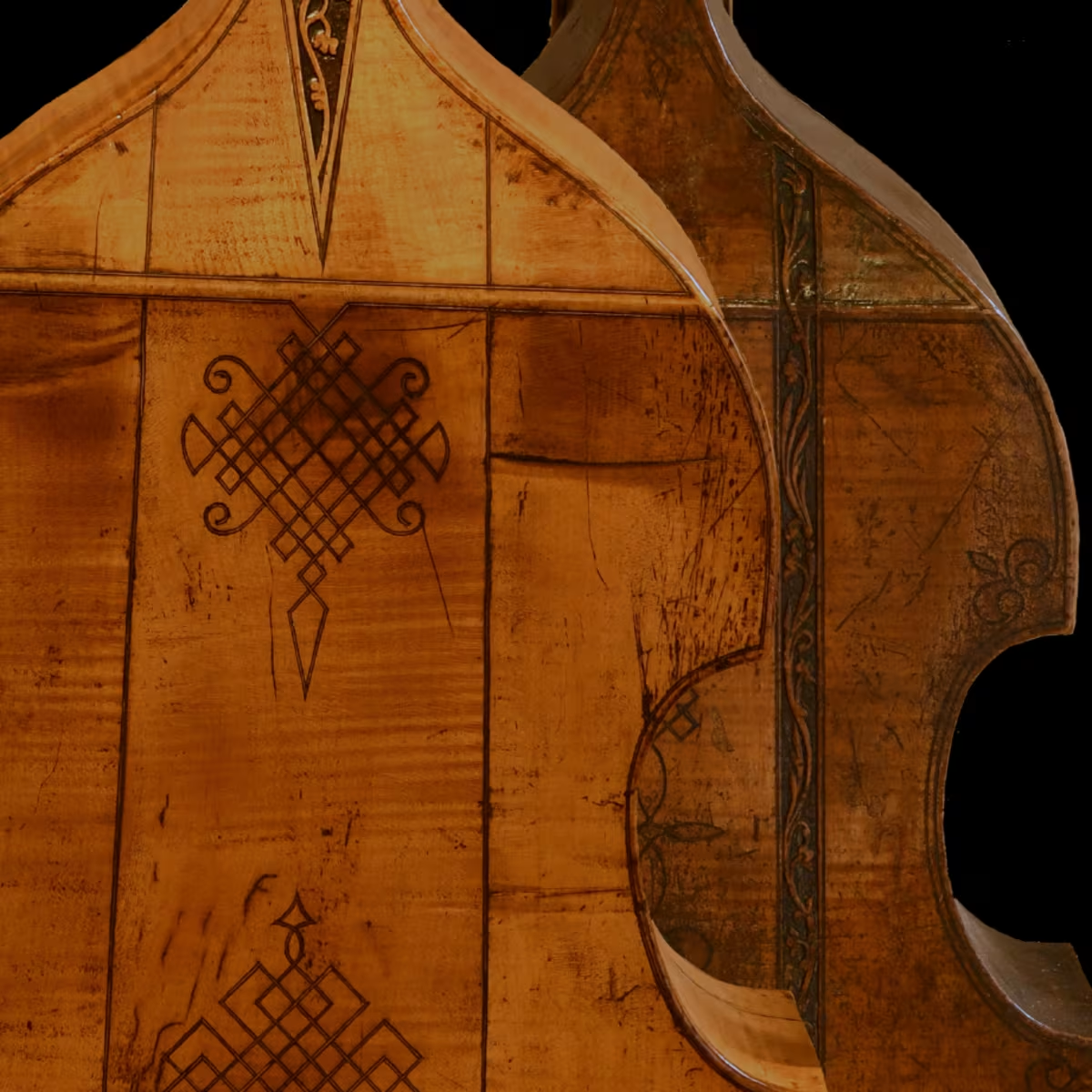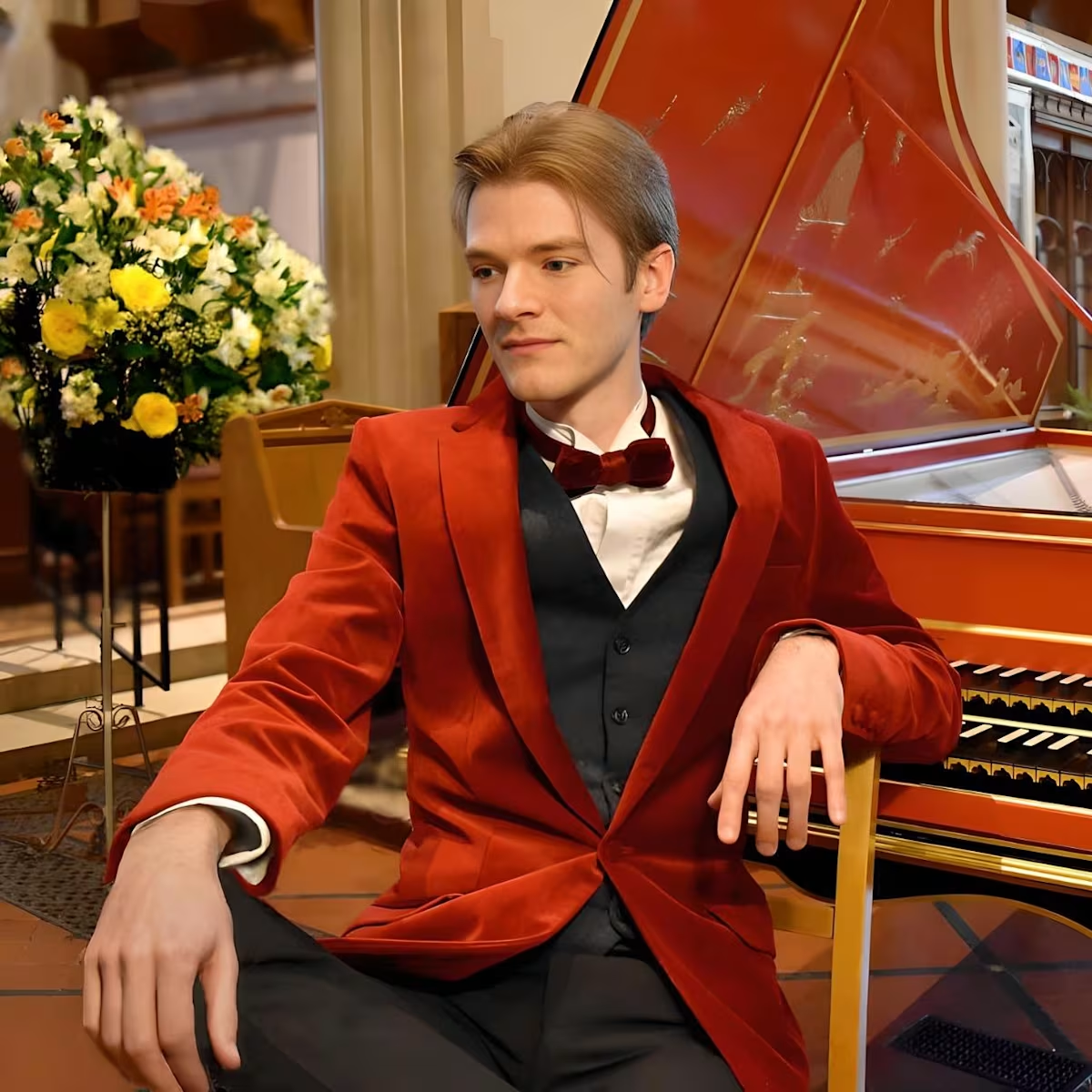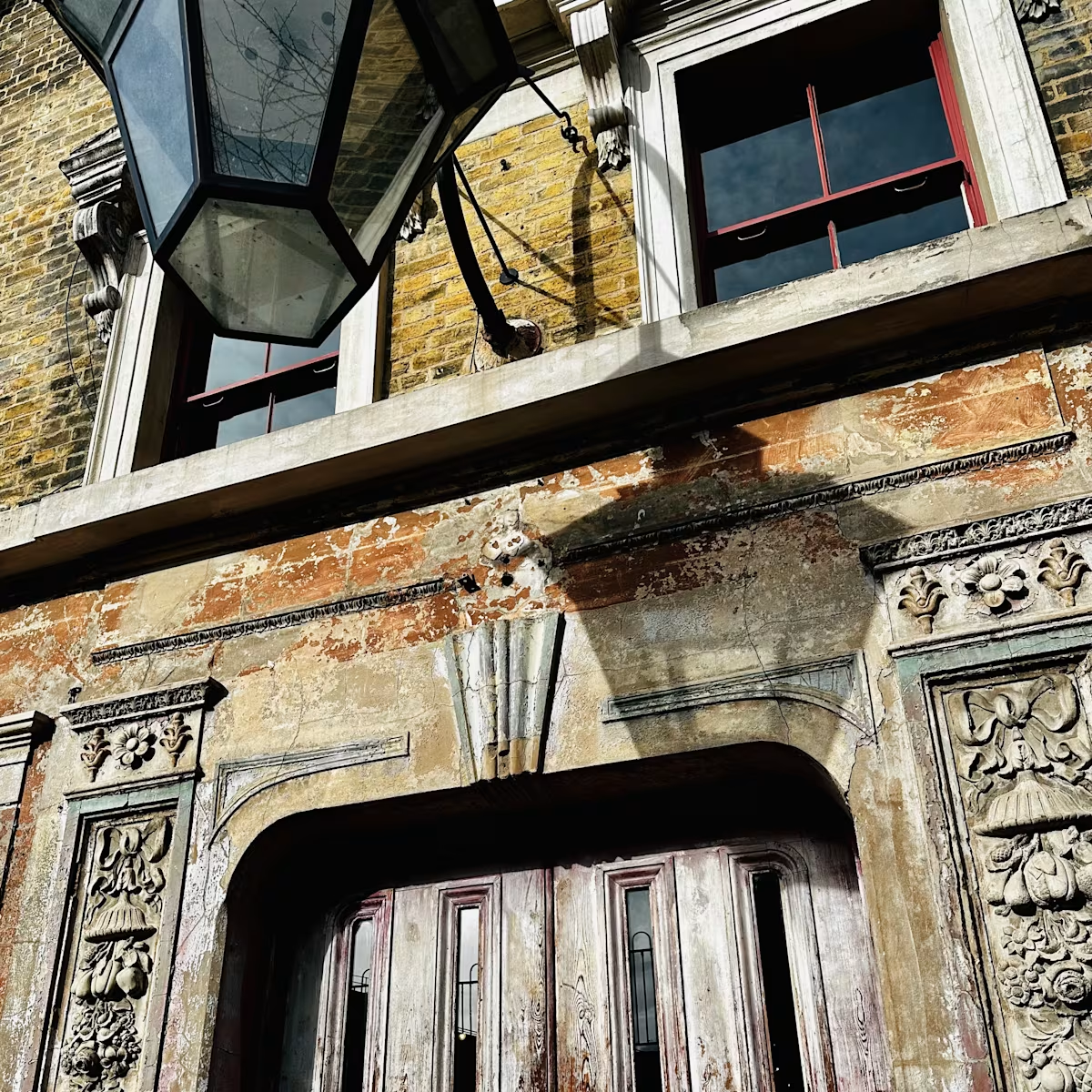Feature
Steven Devine: A Man of Many Keyboards
Share this

There are few keyboard players who have a more comprehensive knowledge of the instruments’ history than Steven Devine. He spent 29 years involved with the collection built up by Richard and Katrina Burnett at Finchcocks in Goudhurst, Kent, the Georgian house they turned into the most chamber of chamber music museums. He first visited when he was twelve and only left, “in 2015 because it was becoming obvious that the future was unsure”. Finchcocks closed in 2016 but the Burnetts kept 15 instruments and these are now housed nearby at Waterdown House in Tunbridge Wells, where they can be used for training, research and small concerts.
While he now lives in Marden, the next village over from Goudhurst, Steven's original home was in Barnsley. Being a young musician did not make for an easy life at school there, and it was a relief when he transferred from Yorkshire to Chethams Music School in Manchester where he could fit in much more easily with his fellow students. There he started as a pianist but he soon, “got sick of piano virtuoso practice and fell out of love with the music, so the school sent me down to the harpsichord and organ department,” and this rekindled his enthusiasm. From Chethams he moved on to St Peter's College Oxford and it was after he graduated that Finchcocks increasingly occupied him.

Away from Kent, Steven says, “my first gig was with the Consort of Musick with Anthony Rooley and Emma Kirkby. Even though there was not masses of work, it was all very high quality and it meant I did not have to do endless orchestral keyboard work. I was lucky in my freelancing but it didn't float my boat. There are only so many Messiahs you want to do. At Finchcocks I was always experimenting. I also joined London Baroque with Ingrid Seifert, Richard Gwilt and Charles Medlam. We toured the world as a quartet for years.”
Steven's recording career developed away from ensembles too, mainly for Resonus and the Swedish label BIS, perhaps the most perfectionist of all companies. “I’ve very much enjoyed sourcing special keyboards for BIS.” For Resonus he has been compiling a six-volume set of the complete keyboard works of Johann Ludwig Krebs (1713-1780) – not the most immediately recognisable of baroque composers, even in his lifetime, but one who was good enough for Bach to think of as his most talented pupil. Steven has also recorded the complete harpsichord works of Rameau for the label.
Johann Ludwig Krebs: Keyboard Works - An Introduction by Steven Devine
“Exploring and finishing the complete Krebs has been fascinating.” Having done so, Steven is now rerecording the Goldberg Variations, which he first recorded for Chandos in 2011.
His music-making has not been entirely in chamber and period instrument orchestras, though. From 2002 he became the director of Opera Restor'd for several years and has carried on his opera conducting with Oxford's New Chamber Opera. And after he left Finchcocks, he found himself with the most unlikely of groups. “I got a job with the Norwegian Wind Ensemble. It had been demilitarised in 2002 so they picked areas they could play that were very different from their old military repertoire, like improvised film music. I became their early music adviser. They were using modern instruments, of course, and arranging the music in all sorts of ways, but it was great fun.”
Back in England, Steven started ‘depping’ as the keyboard player in the Orchestra of the Age of Enlightenment. When his teacher John Toll died, he signed up formally to a job-share which, he says, “became career defining”. He now sees himself as very much part of the fabric of OAE. Even so, his alliances keep expanding, whether directing from the instrument or conducting, “with various groups, like the Academy of Ancient Music” (where Christopher Hogwood and Richard Egarr dominated for so long). Across the Atlantic, in Canada, he has developed a strong relationship with Victoria Baroque in British Columbia, and he will shortly make his debut with Sinfonia Nova Scotia on the other coast. I just missed him in Malta last year, when he was conducting Stradella's Oratorio, The beheading of St John the Baptist in the Valetta Baroque Festival – by all accounts an extraordinary occasion, taking place in front of Caravaggio's gruesome depiction of the same subject.
Introducing Mozart's fortepiano - Steven Devine for the OAE
Steven is passing on his skills by going back to teaching piano, but on period instruments, at the Royal Academy of Music and the Royal Welsh College of Music and Drama. “The students report that after they have played them and go back to the modern piano, they find they modify their interpretation.” He also teaches harpsichord and continuo at the Royal Academy and is Early Keyboard consultant to the Royal Birmingham Conservatoire.
In the warmer months Steven takes to the country. In August, there's The Music Summer School and Festival at Gresham's School in Holt, Norfolk, which has taken over the role that Dartington used to fulfil. Before that, in the second week of June, he directs the English Haydn Festival in Bridgnorth, the market town in Shropshire with a steam railway and a beautifully-proportioned church designed by Thomas Telford in 1792, the year that Haydn first visited England. “We have a really fine orchestra led by the great Simon Standage,” Steven enthused. At the festival, he will perform in a fortepiano trio, and will conduct the orchestra in several concerts, bookended by the Grand Opening Concert on 11 June and the Grand Finale on 15 June, which this year will be Haydn's The Creation.
By Simon Mundy
Steven Devine is the Artistic Director of English Haydn Festival (11-15 Jun) and will be taking up the baton in four consecutive orchestral concerts, including The Creation, alongside an appearance in a programme of piano trios. You can also catch him performing with Fiddlesticks Ensemble, Florilegium, Amyas, Illyria Consort, The Mozartists and The Gonzaga Band.
Share this
Keep reading

Old Spelling But Fresh Explorations
Newe Vialles explores the evolution of the viol, blending historic instruments with fresh interpretations in both recordings and live performances.

In conversation: Nathaniel Mander
Nathaniel Mander, a harpsichordist and fortepianist, is known for his highly expressive and personal performances.

Wilton's Music Hall
Nestled in a narrow alley in Whitechapel, East London, you'll find Wilton’s Music Hall, the last remaining relic of Britain’s renowned music hall era.




